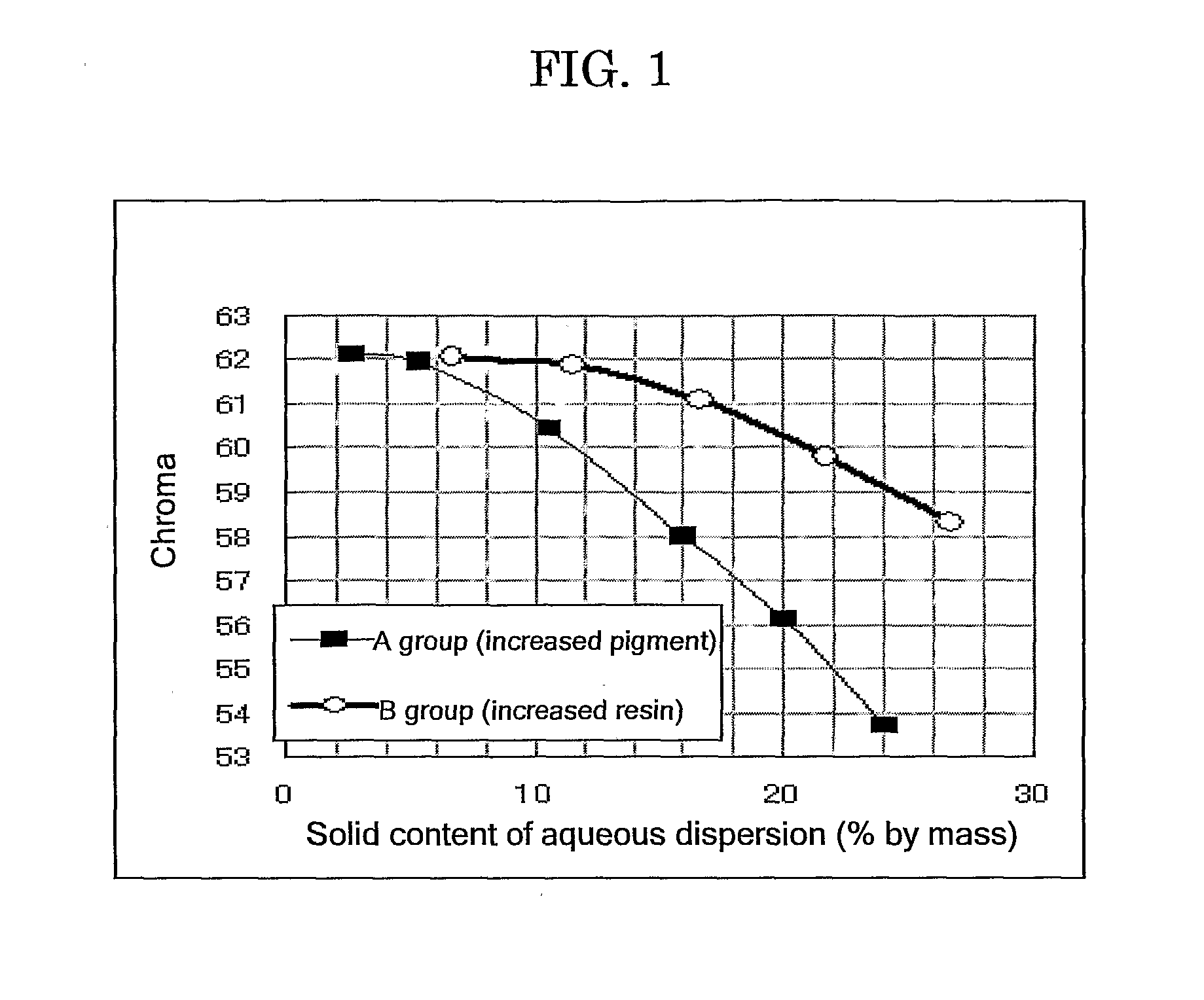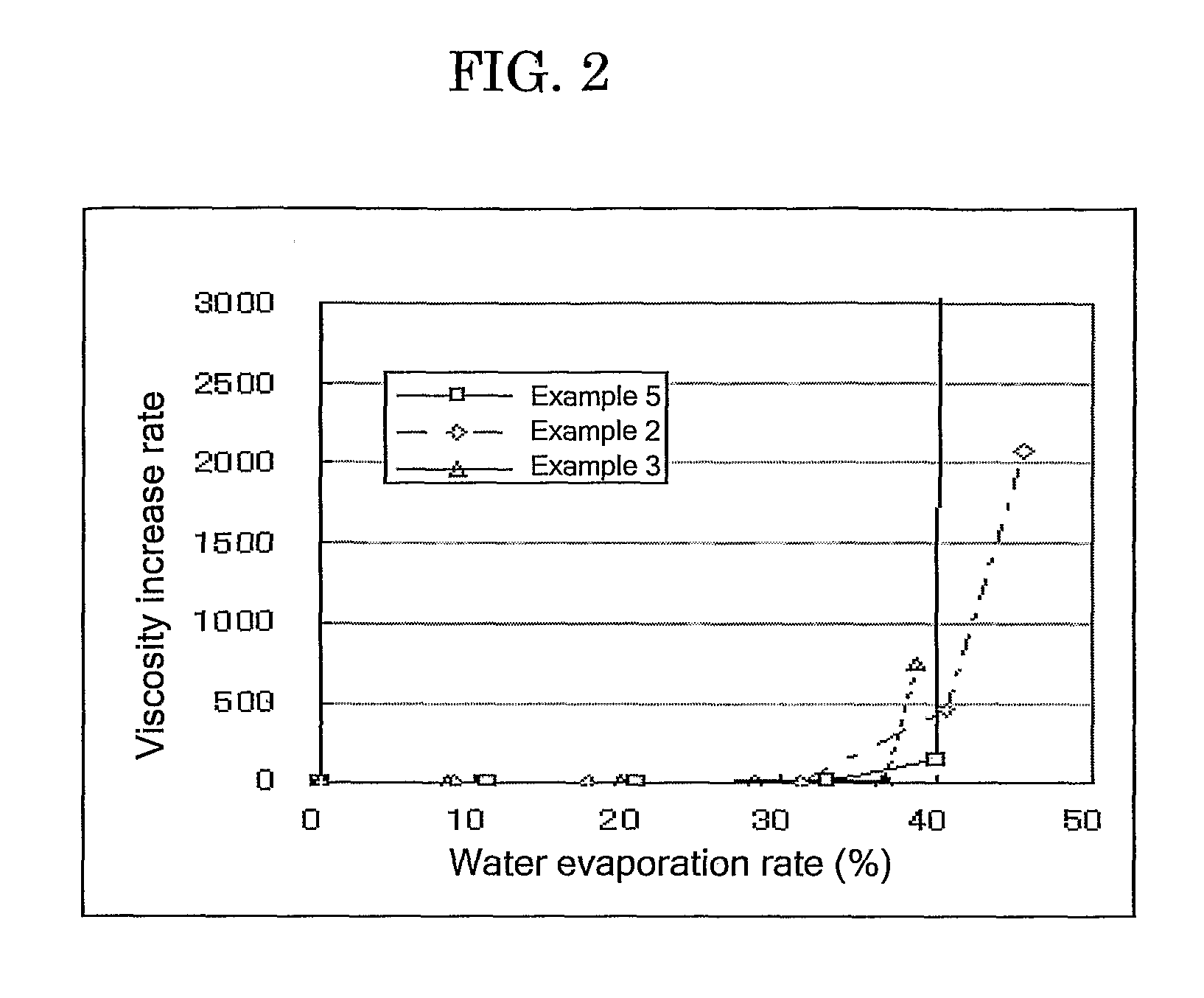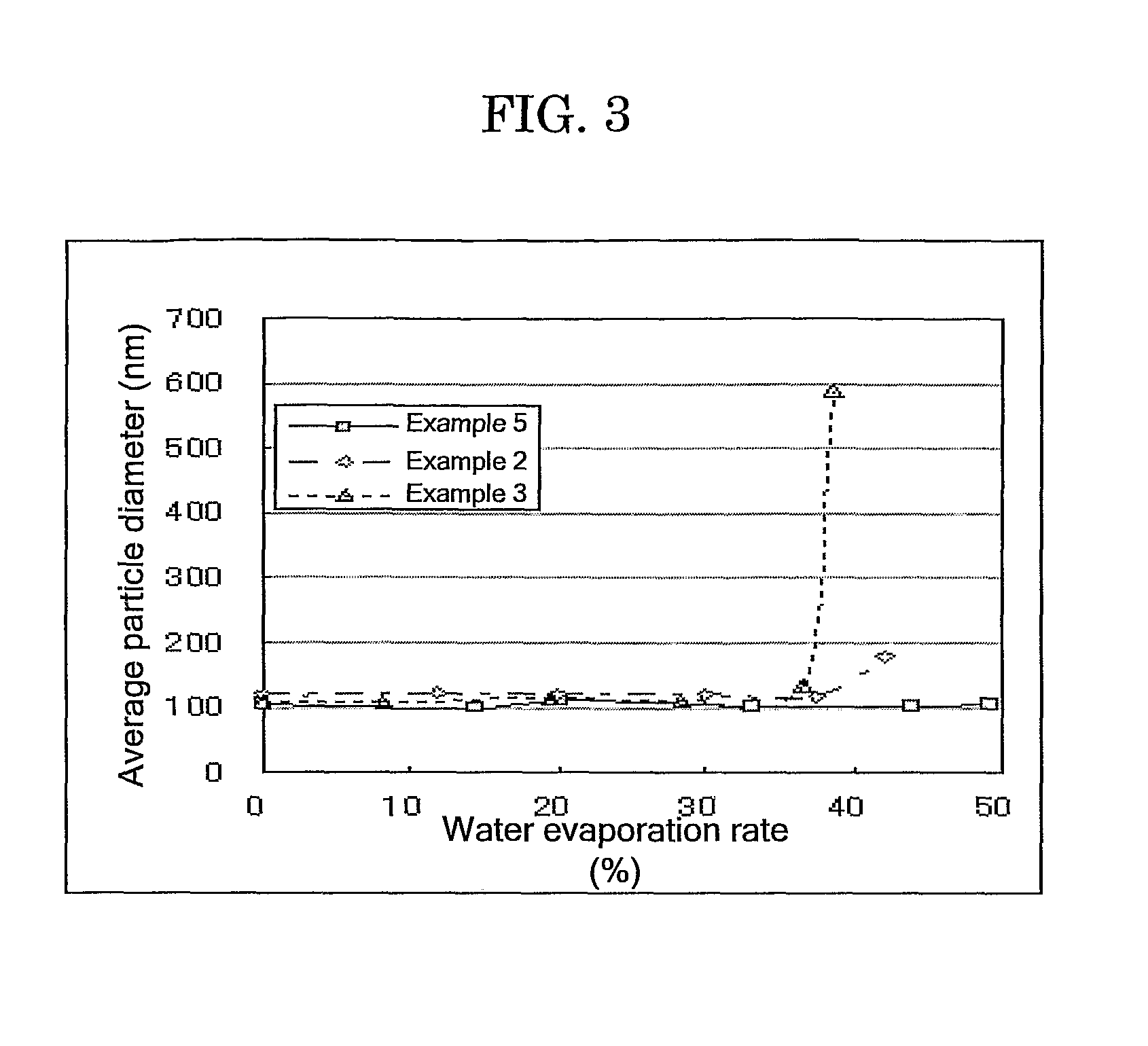Ink for recording, and ink cartridge, ink recorded matter, inkjet recording apparatus and inkjet recording method using the same
a technology of inkjet recording and recording material, which is applied in the direction of film/foil adhesives, group 5/15 element organic compounds, inks, etc., to achieve the effect of high image quality and high coloring property
- Summary
- Abstract
- Description
- Claims
- Application Information
AI Technical Summary
Benefits of technology
Problems solved by technology
Method used
Image
Examples
manufacturing example 1
Preparation of Polymer Solution A
[0253]After thoroughly replacing with nitrogen gas in a 1 L flask equipped with a mechanical stirrer, a thermometer, a nitrogen gas inlet tube, a reflux tube and a dripping funnel, 11.2 g of styrene, 2.8 g of acrylic acid, 12.0 g of lauryl methacrylate, 4.0 g of polyethylene glycol methacrylate, 4.0 g of styrene macromer and 0.4 g of mercaptoethanol were mixed and heated to 65° C.
[0254]Subsequently, a mixed solution of 100.8 g of styrene, 25.2 g of acrylic acid, 108.0 g of lauryl methacrylate, 36.0 g of polyethylene glycol methacrylate, 60.0 g of hydroxyethyl methacrylate, 36.0 g of styrene macromer, 3.6 g of mercaptoethanol, 2.4 g of azobismethyl valeronitrile and 18 g of methyl ethyl ketone was dripped in the flask over 2.5 hours. After dripping, a mixed solution of 0.8 g of azobismethyl valeronitrile and 18 g of methyl ethyl ketone was dripped in the flask over 0.5 hours. After maturing at 65° C. for one hour, 0.8 g of azobismethyl valeronitrile w...
manufacturing example 2
Preparation of Surface Treated Pigment Dispersion
[0256]To 3,000 mL of 2.5 N sodium sulfate solution, 90 g of carbon black having CTAB specific surface area of 150 cm2 / g and DBP oil absorption of 100 mL / 100 g was added, and an oxidation treatment was given thereto by stirring at a speed of 300 rpm at 60° C. to react for 10 hours. This reaction solution was filtrated, filtrated carbon black was neutralized with sodium hydroxide and ultrafiltration was performed. The resulting carbon black was washed with water, dried, and dispersed in purified water so that a solid content thereof to be 20% by mass, to thereby prepare a black pigment dispersion of Manufacturing Example 2.
manufacturing example 3
Preparation of Pigment-Surfactant Dispersion
[0257]After mixing 100 g of C.I. pigment blue 15:3, 24.8 g of polyoxyethyleneoleyl ether ammonium sulfate and 175.2 g of purified water, the mixture was dispersed using a wet type sand mill, 414.3 g of purified water was added thereto, the mixture was further mixed and centrifuged to remove coarse particles, to thereby prepare a cyan pigment dispersion of Manufacturing Example 3 which contains 14% by mass pigment, and has the solid content of 17.5% by mass.
PUM
| Property | Measurement | Unit |
|---|---|---|
| surface tension | aaaaa | aaaaa |
| viscosity | aaaaa | aaaaa |
| RH | aaaaa | aaaaa |
Abstract
Description
Claims
Application Information
 Login to View More
Login to View More - R&D
- Intellectual Property
- Life Sciences
- Materials
- Tech Scout
- Unparalleled Data Quality
- Higher Quality Content
- 60% Fewer Hallucinations
Browse by: Latest US Patents, China's latest patents, Technical Efficacy Thesaurus, Application Domain, Technology Topic, Popular Technical Reports.
© 2025 PatSnap. All rights reserved.Legal|Privacy policy|Modern Slavery Act Transparency Statement|Sitemap|About US| Contact US: help@patsnap.com



